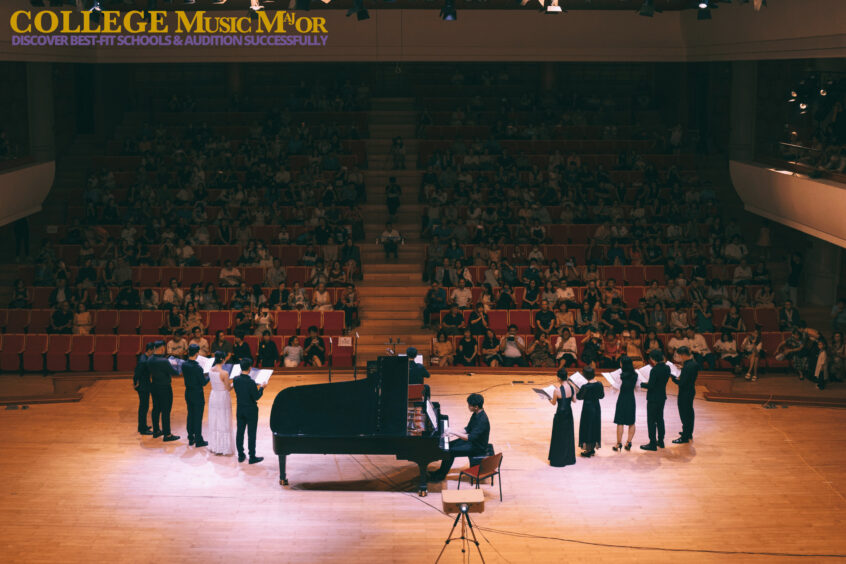A Comprehensive Guide
It’s no secret that the journey to a successful career in music can be financially challenging. With escalating education costs, students and parents often grapple with mounting debts and financial strain. The good news is numerous music scholarships are available to help alleviate this burden. This guide aims to provide a comprehensive understanding of music scholarships and how to secure them to fund your music education dreams.
Understanding Music Scholarships
Music scholarships are financial awards given to students who excel in music. They are designed to encourage and support talented musicians who wish to pursue music-related studies in higher education. These scholarships can be awarded based on various factors, including talent, financial need, academic achievement, and specific musical interests or disciplines. They exist in various types, each with its own set of criteria. They are offered by many entities such as schools, music departments, state organizations, national bodies, industry-related entities, and even specific background-related scholarships.
Types of Music Scholarships
School-Issued Scholarships
These are scholarships given out by specific educational institutions. They are often based on merit, with the audition and interview process crucial in selecting recipients. The candidates are evaluated on their musical prowess and potential to excel in their chosen discipline in the institution’s program.
Music Department Scholarships
More prominent universities often have music departments that offer scholarships. These scholarships are often smaller, but every little bit helps. They are usually specific to the music department and may be based on talent and financial need.
State Organization Scholarships
Every state usually has a music educators association offering financial awards for students who want to study music in college. These awards are typically smaller but can add up to a significant amount if you apply for multiple scholarships.
National Music Scholarships
National music scholarships are usually more general and cater to a larger pool of students. They can range from scholarships for specific instruments to awards for specific genres of music.
Discipline-Specific Scholarships
These scholarships are directed toward students who excel in a particular musical discipline. For example, there could be a scholarship specifically for guitarists or vocalists. These scholarships often require students to demonstrate high proficiency in their chosen discipline.
Background-Specific Scholarships
These scholarships are awarded to students based on their background or personal circumstances. For example, scholarships exist for students of a particular ethnicity or gender or those with a specific disability.
How to Secure Music Scholarships
Securing a music scholarship can be a competitive process. However, with thorough preparation and a strategic approach, you can significantly improve your chances of success.
Start Early
Start your research early and understand the specific requirements for each scholarship. Each scholarship has its own set of eligibility criteria and application process. Some may require an audition, while others need an essay or recommendation letters.
Prepare for Auditions
Many music scholarships require an audition. Preparing several pieces that showcase your technical skills and musicality is crucial. Choose pieces that are suited to your abilities and that you can perform confidently. Practice regularly and consider getting feedback from your music teachers or peers.
Ace the Interview
Scholarship interviews allow the committee to get to know you better. Prepare to discuss your musical background, future goals, and why you’re a good fit for the scholarship. Be authentic and passionate about your music.
Showcase Your Academics
Don’t neglect your academics. Many scholarships also consider your academic performance. Maintain a good GPA and participate in school activities, demonstrating your leadership and commitment to music.
Apply to Multiple Scholarships
Don’t limit yourself to just one scholarship. Apply to as many scholarships as possible to increase your chances of securing funding. Every bit of financial aid can help reduce your education costs.
Noteworthy Music Scholarships
To help you kickstart your scholarship search, here are some notable music scholarships you might want to consider:
- The American Society of Music Arrangers and Composers Scholarships: This scholarship is available to undergraduate and graduate students studying composition and arranging at an American conservatory, college, or university.
- John Lennon Scholarships: This scholarship is open to U.S. college students between the ages of 17 and 24 who are songwriters and composers of contemporary musical genres.
- Sphinx Competition: This competition offers young Black and Latino string players scholarships.
- BMI Student Composer Awards: This award is open to classical composers under 28 living anywhere in the Western Hemisphere and studying music.
Remember, this is not an exhaustive list. There are countless other music scholarships out there waiting to be discovered. So, start your search today and take the first step towards financing your music education dream.
Conclusion
Music scholarships can be a lifeline for aspiring musicians, helping them pursue their passion without the burden of financial constraints. However, securing these scholarships requires dedication, preparation, and strategic planning. By starting early, honoring your talents, showcasing your academic prowess, acing your interviews, and applying to multiple scholarships, you can increase your chances of winning a music scholarship. Remember, every bit of financial aid can make a big difference in your musical journey. So, start your search today and take the first step towards achieving your dream of attending a top music college.

